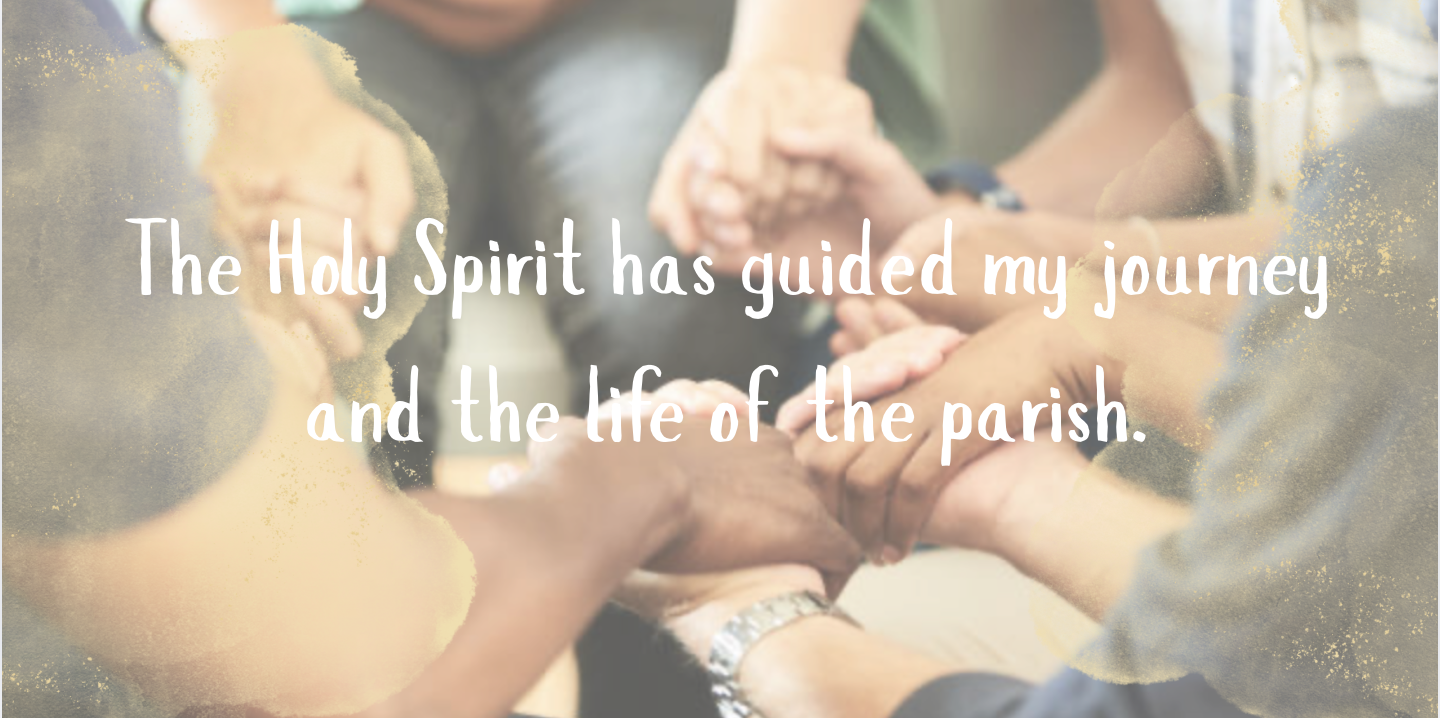
The Holy Spirit has guided my journey and the life of the parish.
I grew up and was confirmed in St. Mark’s Episcopal Church which use to be on Collingwood Blvd. in Toledo until it closed a number years ago. We weren’t extremely active at the church during my youth, but I sensed, even at an early age that God was real and church was important.
Throughout my life I was exposed to several other church denominations. My husband’s family attended a baptist church and during the first years of our marriage we attended the baptist church with them. Later in my life I became an active member of several other denominational churches. It seemed though that after a short while of attending each of these churches, I found myself getting angry after Sunday morning services. It felt like I was being told what to think and believe. For a while I could shrug off this feeling, but deep down I felt God was nudging me to make a change. It was during this time that I had visited St. Paul’s church. I think I had only visited once or twice, but Mary Spangler kept leaving me voice messages on my answering machine inviting me back. When I finally came back to St. Paul’s, it felt like I was coming home. The Episcopal Church’s beliefs, based on scripture, tradition, and reason—the “three-legged stool” that Paul often mentions—invite each person to use their intellect as part of their faith journey, which appealed to me.
The Episcopal Church teaches that God’s love embraces all people. It opens its doors to everyone—no matter their background, gender, or orientation—and invites full participation in church life. Following Jesus’ example, service, compassion, and social justice are important expressions of our faith. In a time of unrest and division in our country, being part of St. Paul’s Church has brought me peace, hope and a sense of belonging to something larger than myself, rooted in values I hold dear.
While thinking of what to write about I brought home the book published in 2009 by Marilyn (Marty) Wendler, “A Beacon in the Wilderness” A History of St. Paul’s Episcopal Church. As I read though the book several things stuck out to me. The first was that St. Paul’s Church was started by a small group of people in the mid-1830’s. The book has a quote by The Reverend Malcom Ward from his Centennial Address in 1961, he states, “This parish was not established by a missionary, or a clergyman or by a decision of a bishop or church body; it was born in the hearts of ordinary people who were filled with the Holy Spirit of God, the motivating power which is the very essence of the church.” This has always impressed me because people make up a church, and when God is directing our path great things can happen.
The second thing that stuck out to me was that St. Paul’s has endured through many challenging times over the course of it’s history. Over the years, we have weathered many storms—epidemics like the cholera outbreak of the 1850s and the recent COVID pandemic, wars from the Civil War to Vietnam, and many cultural and demographics changes, as well. Though the church often struggled financially during these times, through prayer, God’s guidance, strong leadership, and the steadfast dedication of our parishioners, we not only survived but thrived.
One such difficult period came during the 1850s. The boom years of the 1830s and 1840s had ended, and it became clear that Toledo—not Maumee—would emerge as the major port city in the region. As Maumee’s population declined, St. Paul’s faced dwindling membership, unpaid pledges, and the looming threat of foreclosure.
When the Reverend Mark Jukes arrived in 1853 with his wife, Harriet, and their seven children to serve as Rector, the situation looked bleak. Yet through the combined efforts of Reverend Jukes and the parishioners, the church was rescued from bankruptcy. Sadly, his time at St. Paul’s was short. In 1854, a deadly cholera epidemic swept through the area, claiming the lives of both Mark and Harriet Jukes.
Another time described in the book was during the “Great Depression,” while the church struggled to maintain its own financial stability parishioners and Vestry reached out to the community. The Parish House was opened for the “benefit of the unemployed” and was available for “athletic activities “as well as reading and card playing on Mondays and Thursdays. The church also became a meeting place and collection center for food and clothing for the needy and was the official distribution center for Red Cross flour.
As we face this current challenging time in our history, I feel that guided by the Holy Spirit of God, and with everyone’s help we will continue to not only survive, but to thrive. So as a member of vestry we ask each person to pray earnestly what God will have you do to support the mission of St. Paul’s “to be a loving family united in the ministry of Jesus Christ, worshiping, learning, and serving together in the Episcopal tradition.
Sincerly,
Donna Dick
